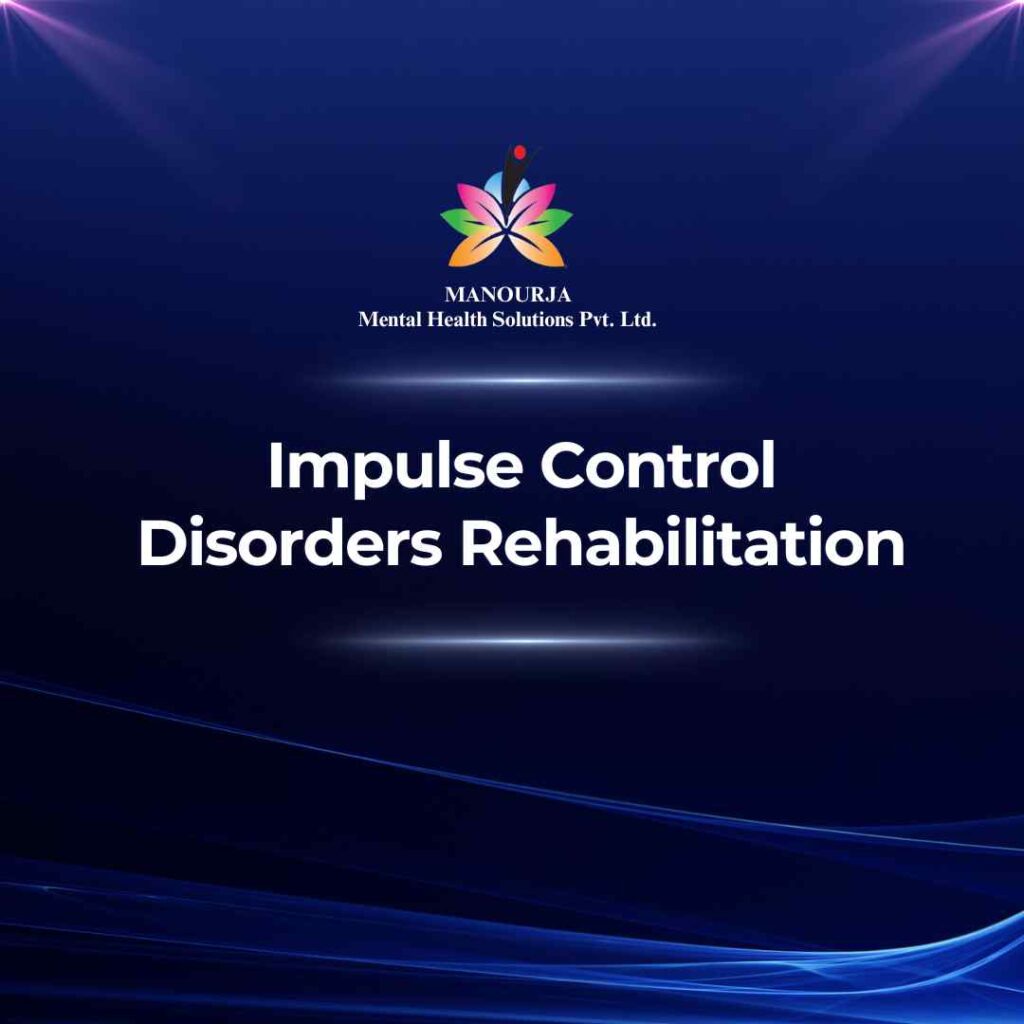Impulse Control Disorders Rehabilitation

Impulse Control Disorders encompass a group of psychiatric conditions marked by an inability to resist the urge to perform an action that may be harmful to oneself or others. This group includes disorders such as kleptomania (compulsive stealing), pyromania (fire-setting), intermittent explosive disorder (uncontrolled episodes of extreme anger and physical outbursts), and pathological gambling.
Signs and Symptoms of Impulse Control Disorders
- Inability to Resist Urges or Impulses: Acting on an impulse despite potential negative consequences.
- Increasing Sense of Tension Before the Act: Feeling a growing tension or arousal before committing the act.
- Pleasure, Gratification, or Relief at the Time of Committing the Act: Experiencing a sense of release or satisfaction during the act.
- Regret, Guilt, or Remorse Afterwards: Often feeling guilty, remorseful, or distressed after the event.
- Repeated Attempts to Stop the Behavior: Unsuccessful efforts to resist the impulse.
- Social and Occupational Impairment: Problems in relationships and at work or school due to the behavior.
Indicators for Outpatient Psychosocial Rehabilitation (OPD)
- Mild to Moderate Cases: Symptoms are present but may not yet have led to severe legal, social, or personal consequences.
- Good Support Systems: The individual has access to a supportive network that can help monitor and manage behavior.
- High Motivation: The individual is motivated to change and believes outpatient treatment can be beneficial.
Indicators for Inpatient Psychosocial Rehabilitation (IPD)
- Severe Cases: Symptoms have led to significant disruption in personal, social, or occupational functioning, or have resulted in legal issues.
- Risk of Harm to Self or Others: Especially in cases of intermittent explosive disorder or pyromania where the risk of physical harm might be imminent.
- Previous Treatment Failures: Outpatient treatments have been ineffective in managing the disorder.
Factors Influencing the Decision
- Severity of the Disorder: How much the disorder impacts daily functioning and personal safety.
- Presence of Comorbid Disorders: Other coexisting mental health conditions may necessitate more intensive treatment.
- Individual’s Environment: Whether the individual’s current environment contributes to the behavior or supports recovery.
How Psychosocial Rehabilitation Aids in Treating Impulse Control Disorders
Psychosocial rehabilitation focuses on providing individuals with strategies to manage their impulses effectively, improve emotional regulation, enhance social skills, and address any underlying issues contributing to the disorder.
Specific Techniques and Approaches at MANOURJA
- Cognitive Behavioral Therapy (CBT): Helps individuals recognize triggers, disrupt irrational beliefs, and change the thought patterns that lead to impulsive behavior.
- Dialectical Behavior Therapy (DBT): Useful particularly for its modules on distress tolerance and emotional regulation.
- Motivational Interviewing: Enhances motivation to change and helps align the individuals’ values with their behaviors.
- Relapse Prevention Therapy: Identifies high-risk situations and develops strategies to prevent relapse.
- Group Therapy: Provides peer support, enhances social skills, and allows individuals to learn from the experiences of others.
Steps in Psychosocial Rehabilitation at MANOURJA
- Intake and Assessment: Comprehensive evaluation of the individual’s symptoms, history, and needs.
- Treatment Planning: Developing a personalized treatment plan that includes specific goals and methodologies.
- Implementation: Regular sessions focusing on therapy, skills training, and education.
- Continuous Monitoring: Regular assessments to track progress and make necessary adjustments to the treatment plan.
- Aftercare Planning: Developing a plan for follow-up support to maintain gains achieved during treatment.
“Control your impulses, and you unlock the potential to achieve your dreams.”
